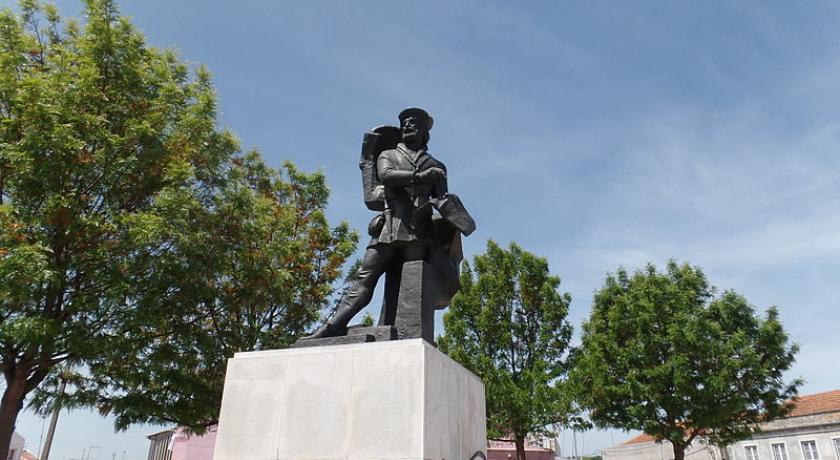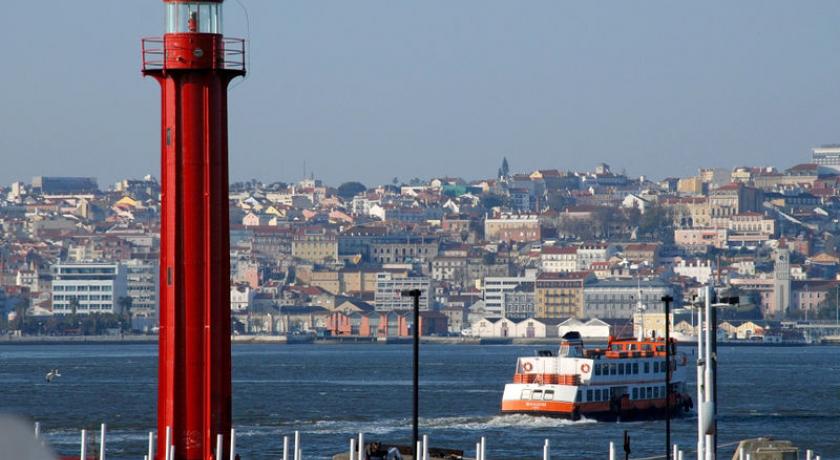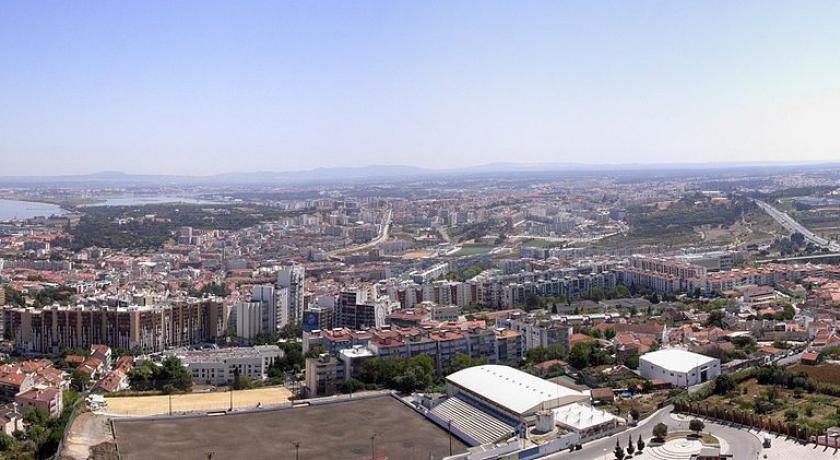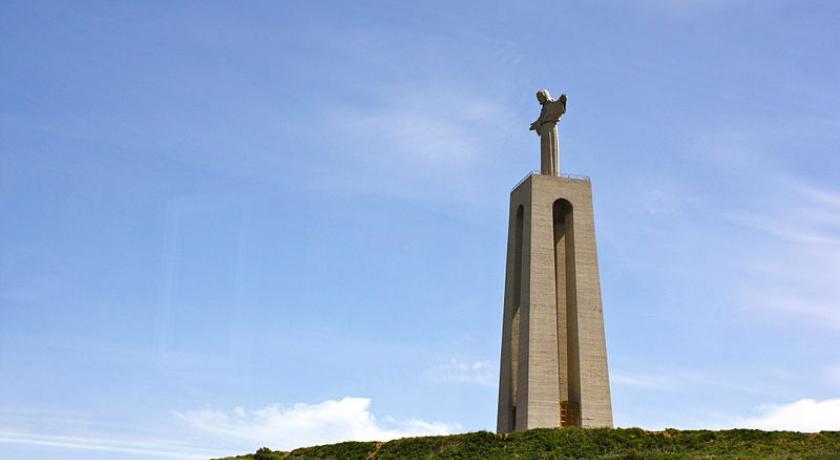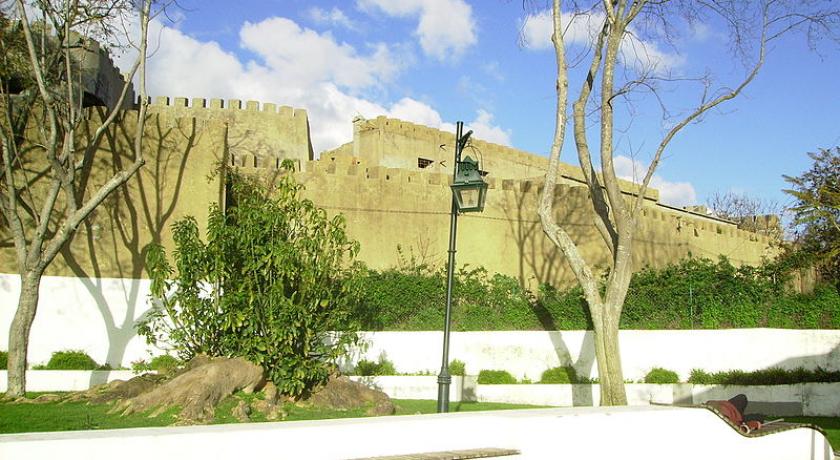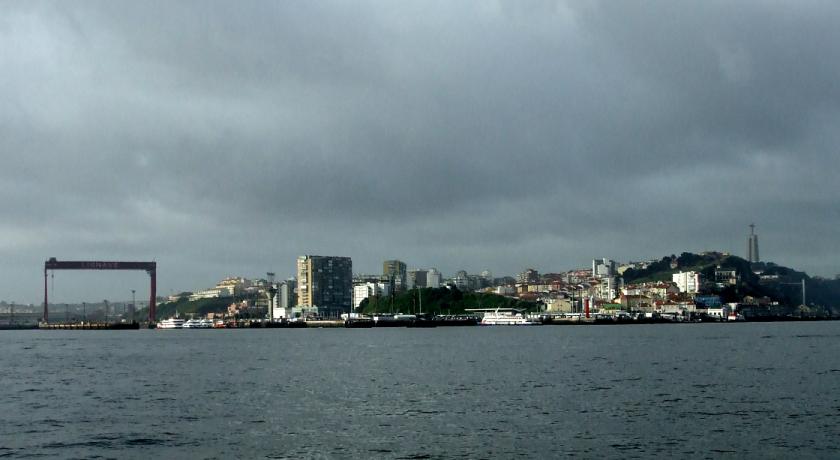Description
Almada (Portuguese pronunciation: [aɫˈmaðɐ]) is a city and a municipality in Portugal, located on the southern margin of the Tagus River, on the opposite side of the river from Lisbon. The two cities are connected by the 25 de Abril Bridge. The population in 2011 was 174,030, in an area of 70.21 km². The urbanized center had a population of 101,500 in 2001.
Almada, on the south bank of the River Tagus, has undoubtedly the best view of the city of Lisbon. The most outstanding views are from the castle, the panoramic funicular of the Boca do Vento (Mouth of the Wind), and above all the statue of Christ the King, built in 1959.
In past centuries, Almada was a popular summer resort for the Court, which ordered the construction of stately homes and buildings that are still preserved in the city.
Life in Almada does not revolve only around the capital, where most of its inhabitants work; it is a city with its own life, the setting for well-attended events like the Theatre Festival.
The Costa da Caparica, much sought after during the summer season by the population of Greater Lisbon, who are lured by the long sandy beaches, is also part of the council of Almada. The area's cuisine deserves a special mention, especially the delicious caldeiradas (fresh fish casseroles) that are typical of places like Cacilhas, Porto Brandão, Ginjal and the Costa da Caparica.
History
Human presence in the area of Almada dates to the end of the Neolithic period about 5000 years ago; archeological excavations performed in the municipality suggest that non-sedentary nomadic tribes may have occupied this location sporadically. The gradual development of settlement here made its greatest advance with the coming of Islamic civilization, when Muslims constructed a fort at Almada to defend and monitor the entrance to the Tagus River. Lying across the river from Lisbon, the area of Almada was a crossroads for a succession of various peoples who traded along the Tagus, including Phoenicians, Romans and Moors.
As one of the principal Arab military bases along the southern margin of the Tagus, Almada was conquered by the Christian forces of Afonso I with the aid of English Crusaders in 1147. Alongside these Christians there lived many free Moors and Jews, under the royal protection guaranteed them by Afonso I in the charter of 1170 (which applied to all the former Moorish strongholds at Lisbon, Almada, Palmela and Alcácer).
Almada received a foral from King Sancho I in 1190, although it came at a price: Miramolim Jacub-Abu-Jassuf, son of the Moorish leader who had laid siege to Santarém in 1171, was angered by the Christian victories and gathered a large army. He boldly attacked in the north, conquering Alcácer do Sal and Silves, while forcing the residents of Almada, Palmela and other towns along the Tagus into hiding. It would be some time after the death of Sancho before this region would be restored to Portuguese control.
When this event occurred with the success of the Reconquista in driving the Muslims out, the Order of Santiago, a donatorio of Almada after 28 October 1186, had an important role in the territory (especially between the Tagus and Sado Rivers). In this role, it facilitated the repopulation of acquired territories and was the beneficiary of the various local economies.
Geography
Although small in area, Almada has a high population density. It is bounded to the southeast by Seixal, to the south by Sesimbra, to the west by the Atlantic Ocean and to the north and northeast by the Tagus River. At Cacilhas, its main port, ferry boats transport visitors and local residents across to Lisbon daily, while the 25 de Abril Bridge, which spans the Tagus, is traversed by rail, commercial and personal vehicles daily. Almada is considered a transportation hub and a fast-growing suburb; its coast has several sandy beaches and panoramic vistas.
Located in the district of Setúbal, the municipality includes two cities, Almada and Costa da Caparica, and is divided into five civil parishes:
- Almada, Cova da Piedade, Pragal e Cacilhas
- Caparica e Trafaria
- Charneca de Caparica e Sobreda
- Costa da Caparica
- Laranjeiro e Feijó
International relations
Almada is twinned with:
- Porto Amboim, Angola
- Ostrava, Czech Republic
- Sal, Cape Verde
- Regla, Cuba
Transportation
The 25 de Abril Bridge links Lisbon and Almada, which are on opposite sides of the Tagus river. The municipality is served by a continually expanding light-rail transit system, the Metro Transportes do Sul, linking it to the suburban rail system serving Greater Lisbon and the municipality of Seixal.
Source: https://en.wikipedia.org/wiki/Almada
Address
Almada
Portugal
Lat: 38.676525116 - Lng: -9.165104866


